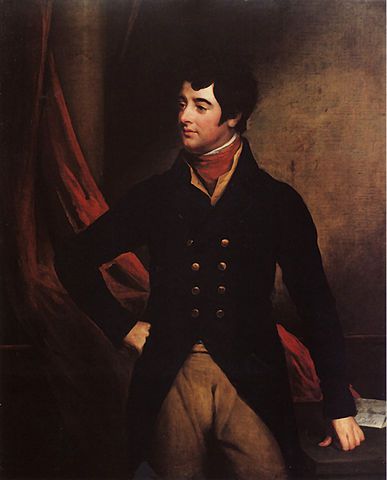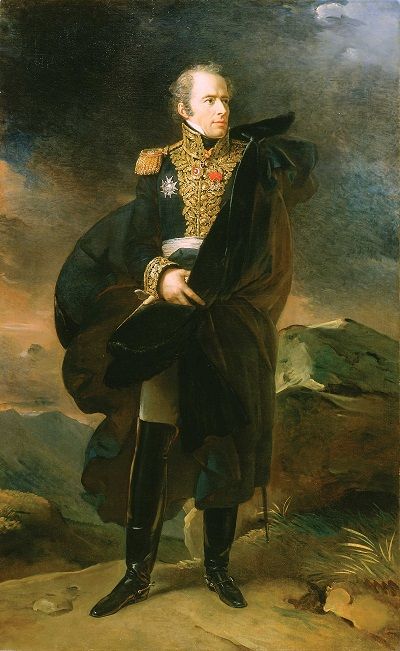
Setting
September, 1791. On the eve of elections to the first French assembly, the Revolution is still far from accomplished. The National Legislative Assembly is fledgling and untested; the new Constitution irks the radicals as much as the rightists; a conservative reaction is brewing amongst the army and the aristocracy; and the King himself remains in power, isolated but not impotent. All the eyes of Europe are on Paris, to see whether this novel exercise in popular rule will end in triumph, or failure. But not all countries are content to let events pan out: France’s neighbours fear for their own authority, and even liberal Britain – though sympathetic to the revolutionary cause – remains hostile to French power and influence. If the revolution is to succeed, its champions shall have to chart a careful course, to avoid inflaming opposition at home and abroad, while still preserving the gains of the people. The destiny of the republic is in their hands.
Game Summary
You are the political leaders of Revolutionary France in the late 18th century. It is your goal to lead your faction to victory (and by extension, France). How you achieve this, is up to you. You will compete for parliamentary dominance, control of the government and national prestige.
This game is not bound by history: from the very beginning, the course of the revolution shall be decided by player activity rather than by pre-determined events. You will respond to developments or you can instigate them. Updates will come in several forms: Election Updates, which are self-explanatory; General Updates, which give you an overview of the situation in France; War Updates, should France become embroiled in war; and Popular Updates, informing you of the mood of the people. In public, players will draft legislation to advance your faction's agenda; behind closed doors, you will plot to improve your faction's influence by any means necessary. The fate of France rests on the players - they may guide her to glory, or run her into ruin.
Aside from the Assembly, there shall also the Cabinet, lead by the First Minister, which will be responsible for the administration of France. Appointed by
This game owes a debt to Frymonmon's Crisis in the Reichstag and Thunderhawk3's Shadow of the Andes for inspiration and borrowed templates.
---
Political Factions
Templar
Jacobin
Social
Cordelier
Phrygian
---
Government of France
Regent: Louis Philippe, Duc d'Orléans ((Spectre17)) Alliance
First Minister: Renaud de Cartelège ((Gen. Marshall)) Cordelier
Lord Chancellor: Pierre Le Goff ((Noco19)) Templar
Controller-General of Finances: Antoine Durand ((EmperorGrimm)) Phrygian
Secretary of State for Foreign Affairs: Henri de La Costa Leroux ((Terraferma)) Social
Secretary of State for War: Jacques Nazaire Aulard ((Maxwell500)) Cordelier
Secretary of State for the Navy: André Bouchard ((viola)) Jacobin
Lieutenant-General of Police: Vincent Parént ((Dadarian)) Templar
Archbishop of Paris: Adolphe Beauchene ((czechmasaryk)) Feuillant
---
Current Characters
| Participant | Character Name | Date of Birth | Culture | Position | Political Affiliation |
| Ab Ovo | Francisque de St Denis-Paternoster | 3rd January 1760 | French | Unionist | |
| viola | André Bouchard | 31st August 1758 | Parisian | Secretary of State for the Navy | Jacobin |
| Dadarian | Vincent Parént | 15th December 1770 | Norman | Lieutenant-General of Police | Templar |
| Riccardo93 | Paul-Aurélien de St Sebastien, Baron d'Harfleur | 3rd December 1768 | Norman | Feuillant | |
| EmperorGrimm | Antoine Durand | 20th April 1770 | Parisian | Controller-General of Finances | Phrygian |
| Noco19 | Pierre Le Goff | 3rd August 1760 | Breton | Lord Chancellor | Templar |
| baboushreturns | Charles-Pierre-François Augereau | 21st October 1757 | Parisian | General of the Army of the Rhine | Templar |
| czechmasaryk | Adolphe Beauchene | 2nd May 1738 | Arpitan | Archbishop of Paris | Feuillant |
| The Fish | Fernande Duveau | 4th March 1751 | Parisian | Jacobin | |
| Maxwell500 | Jacques Nazaire Aulard | 12th February 1757 | Parisian | Secretary of State for Foreign Affairs | Cordelier |
| Gen. Marshall | Renaud de Cartelège | 29th December 1748 | Parisian | First Minister | Cordelier |
| alexander23 | Javert Valjean | 21st July 1759 | Parisian | General of the Army of the Centre | Cordelier |
| Watercress | Valérian Lémieux | 27th January 1754 | French | General of the Reserve Army | Templar |
| Tapscott | Felipe-García de Mauléon-Licharre | 21st February 1743 | Basque | Monarchical | |
| aussieboy | Ignace Louis, Baron de Loiollac | 31st July 1751 | Basque | General of the Army of Alsace | Unionist |
| firelordsky | Ferdinand Ignace | 13th October, 1773 | Catalan | Alliance | |
| Spectre17 | Louis Philippe, Duc d'Orléans | 31st August 1758 | French | Regent | Alliance |
| DensleyBlair | Boniface Sainte-Dévote | 17th July 1767 | Monegasque | Social | |
| Terraferma | Henri de La Costa Leroux | 21st January 1765 | Catalan | Secretary of State for Foreign Affairs | Social |
| NikoHoI3 | Marie Caroline Sophie Pontbriand | 19th May 1764 | Provençal | Phrygian | |
| sealy300 | Jacques Baudouin | 23rd August 1754 | Parisian | ||
| G.K. | Jacques, Comte de Nogart-Lefebvre | 2nd April 1749 | Parisian | Lieutenant-General of Lorraine | Monarchical |
| tonkatoy5 | Jean Absolon Guillory | 20th November 1770 | Parisian | Cordelier | |
| m.equitum | Emmanuel-Philippe du Plessis, Duc de Richelieu | 25th September 1766 | French | Templar |
Past Characters
| Participant | Character Name | Date of Birth | Culture | Position | Political Affiliation |
| Ab Ovo | Louis XVI | 23rd August 1754 | French | King of the French | Feuillant |
| DensleyBlair | Édouard-Alexandre Blair | 17th June, 1763 | Welsh | First Minister | Feuillant |
| Harpsichord | René Leon | 30th September 1765 | Lyonnais | Controller-General | Feuillant |
| sealy300 | Hugues Jean | 31st August 1758 | Occitan | Monarchical | |
| aussieboy | Francois-Joseph Marie Richard | 4th October 1751 | Poitevin | Monarchical |
---
Table of Contents
Elections
30 September 1791: The Feuillant Parliament
Governments
Blair "Feuillant" Ministry (1 October 1791)
Cartelège "Cohabitation" Ministry (8 October 1791)
Budgets
Budget (14 October 1791)
General Updates
September 1791: The Collapse of Consensus
1 October 1791: An Inauspicious Inauguration
2-7 October 1791: Peril and Prospect
8-14 October 1791: We Are All Struggling Together
15-21 October 1791: Far from Heaven
23-28 October 1791: Enemies of the State
War Updates
22 October 1791: The Battle of Sedan
Coups and Rebellions
Vincent Parént (7 October)
Parént's Coup, Part I
Parént's Coup, Part II
Legislation
Local Government Act - PASSED
Suffrage Act - FAILED
Stability Act FAILED
Emigrants Act - PASSED
Conscription Act - PASSED
Bretagne and Lorraine Act - PASSED
Counter-Revolutionary Act - PASSED
Royal Proclamations
Abdication of Louis XVI (7 October 1791)
Speeches
Blair's Inaugural Address (1 October 1791)
Address of Louis XVI to the First National Legislative Assembly (1 October 1791)
Propaganda
Les Cordeliers Issue I
Les Cordeliers Issue II
Les Cordeliers Issue III
Le Phrygien Issue I
Le Phrygien Issue II
Military Statistics
Commanders:
Army of the Rhine - Brigade-General Charles-Pierre-François Augereau ((baboushreturns))
Army of Alsace - Division-General Ignace Louis, Baron of Loiollac ((aussieboy))
Army of the Centre - Brigade-General Javert Valjean ((alexander23))
Reserve Army - Brigade-General Valérian Lémieux ((Watercress))
National Guard - Army-General Jacques Nazaire Aulard ((Maxwell500))
Grand Fleet - Naval Secretary André Bouchard ((viola))
Army of the Rhine - Brigade-General Charles-Pierre-François Augereau ((baboushreturns))
Army of Alsace - Division-General Ignace Louis, Baron of Loiollac ((aussieboy))
Army of the Centre - Brigade-General Javert Valjean ((alexander23))
Reserve Army - Brigade-General Valérian Lémieux ((Watercress))
National Guard - Army-General Jacques Nazaire Aulard ((Maxwell500))
Grand Fleet - Naval Secretary André Bouchard ((viola))
| Location | Infantry | Cavalry | Artillery | Ships | |||
| Northern Front | |||||||
| Army of the Rhine | Rheims | 6,920 | 4,100 | 100 | |||
| Army of Alsace | Neuf-Brisach | 4,250 | 500 | 250 | |||
| Reserve Army | Neuf-Brisach | 6,000 | 2,500 | 1,500 | |||
| National Guard | Paris | 12,000 | 300 | ||||
| Southern Front | |||||||
| Army of the Centre | Lyon | 5,000 | 2,500 | 1,500 | |||
| Border Garrison | Villefranche-de-Conflent | 1,000 | 0,000 | 0,000 | |||
| Navy | |||||||
| Grand Fleet | Brest | 30 |
Last edited:









